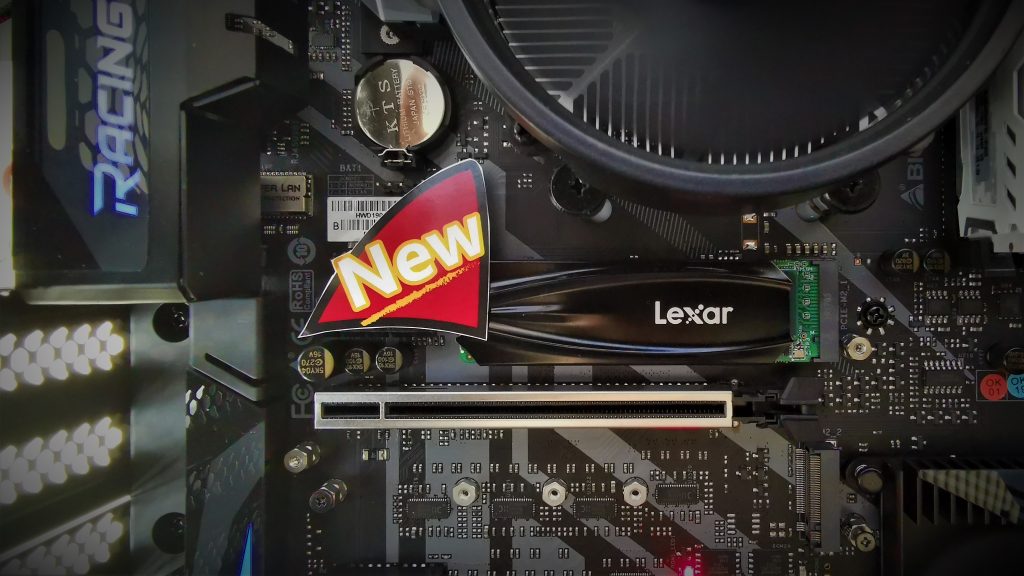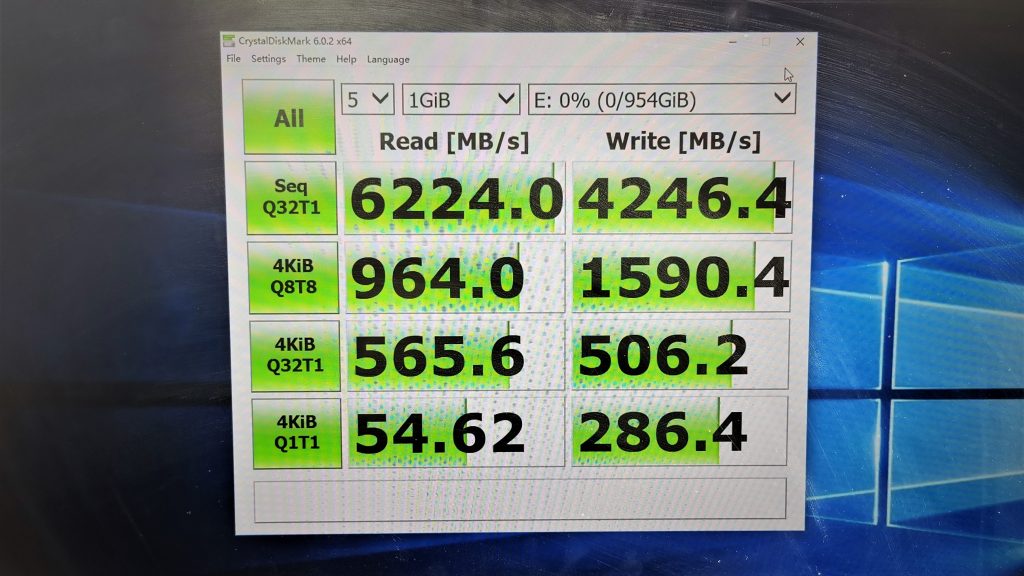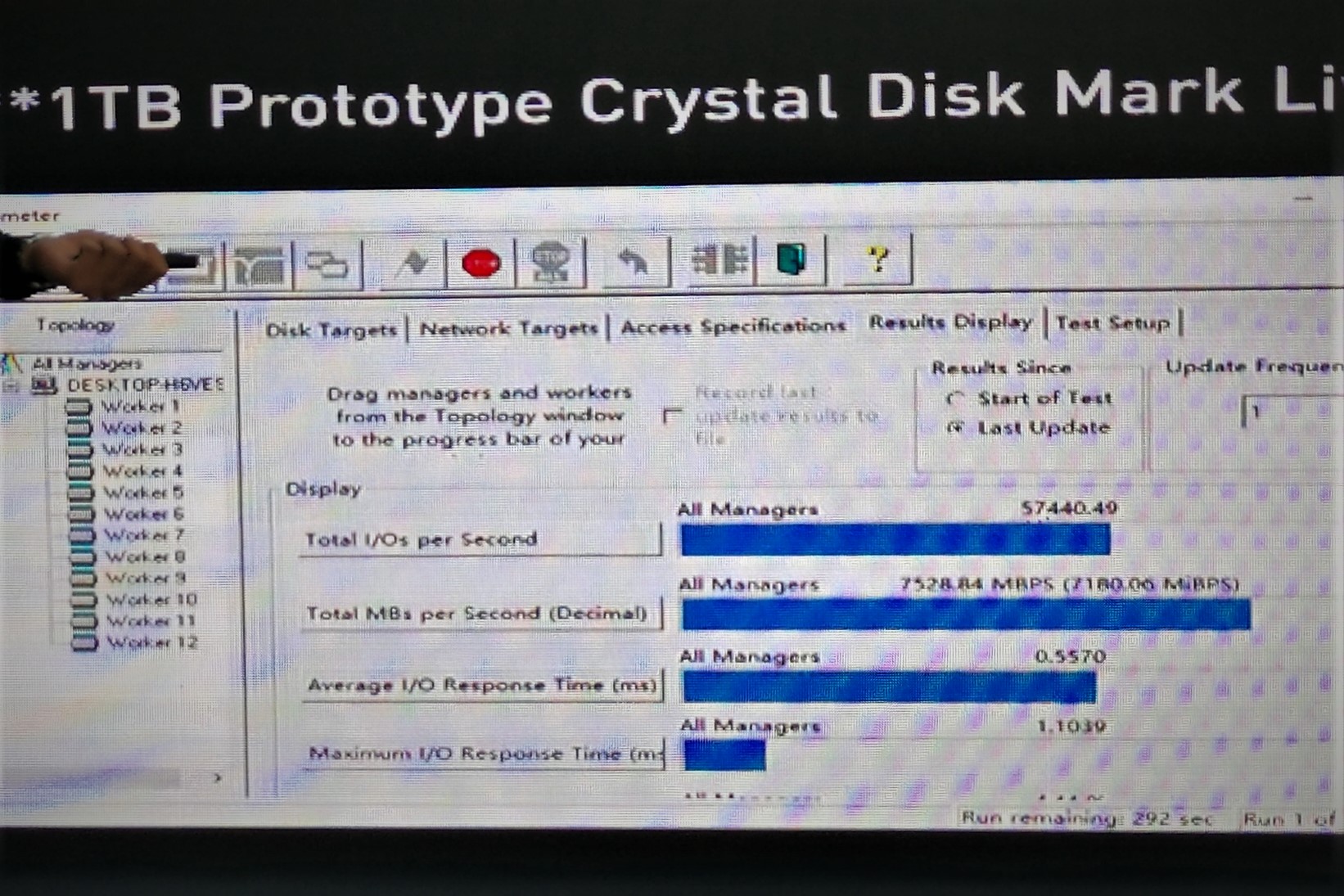Lexar’s New NVMe SSD Hits 7GBps, the Fastest yet for a PCIe 4.0 SSD
Lexar is about to barrel onto the PCIe 4.0 SSD scene.

The latest consumer PCIe 4.0 x4 NVMe SSDs are all built using Phison’s PS5016-E16 NVMe controller. With sequential performance speeds of up to 5 GBps, they are much faster than your standard PCIe 3.0 x4 NVMe SSD. And if you are in the market for speed, they are currently the drives to get, but according to a demo the company gave Thessdreview, they will soon face stiff competition from Lexar.

Lexar showcased a PCIe 4.0 x4 NVMe SSD prototype that it will release in Q2 2020. Lexar hasn’t branded the drive yet, so it doesn’t have a name. However, the company says the drive should be able to reach speeds of 7GBps of sequential read and 4GBps of write throughput.
Lexar demoed the SSD reaching just over 6.2/4.2 GBps of read/write throughput in a Crystal Diskmark test. Later, the company tested with Iometer and revealed the drive could dish out over 7.5 Gbps of sequential read throughput.

Lexar didn’t divulge specifics about the components powering the device, but performance seems similar to Phison’s soon-to-be-released E18 SSD controller that is built on a 12nm process and supports the NVMe 1.4 protocol. We do know the drive will come with LDPC ECC to protect data integrity and boost endurance. Lexar paired the controller to the latest 96L 3D TLC flash; however, it didn’t specify the vendor.
Overall, the drive seems quite similar to what we expect from the next-gen Phison controllers, but the company hasn’t confirmed. Rather, it mentioned that it is not running an SSD controller from a well-known brand like Marvell, Phison, or Silicon Motion.
Size-wise, the SSD will come in an M.2 2280 form factor and feature a heatsink to keep things cool. The model on display comes with a green PCB, which completely clashes with the motherboard’s black and grey theme. Hopefully, Lexar will opt for a black PCB on the final product to make the drive more appealing to enthusiasts.
Get Tom's Hardware's best news and in-depth reviews, straight to your inbox.

Sean is a Contributing Editor at Tom’s Hardware US, covering storage hardware.